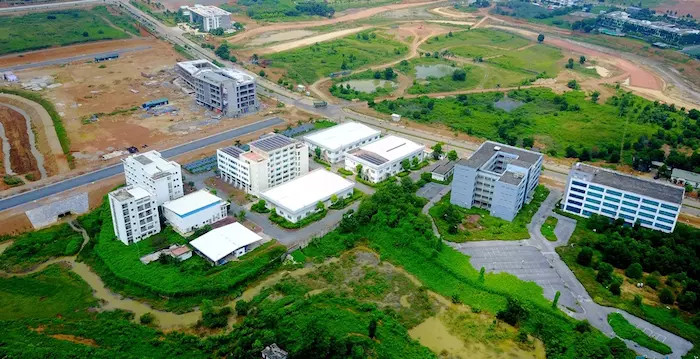
One of the things to be done is revoking pending projects that were licensed in a hurry just before Hanoi expanded in 2008.
Local newspapers reported that in the first half of 2008, just before Hanoi officially was expanded, as many as 11,800 hectares of land were allocated to hundreds of projects, with the total area equal to that of five previous years combined.
Since then, hundreds of projects more have been licensed but have not been implemented.
Though city has no new real estate projects and people lack opportunities to buy houses and apartments, many projects have been left idle.
Over the years, previous administrations had plans to revoke some of the unused projects.
At a meeting with businesses in late 2021, Hanoi Party Committee Secretary Dinh Tien Dung said that Hanoi’s economy would develop rapidly if only a part of the outstanding problems were solved.
Dung told VietNamNet that hundreds of urban housing development projects with land were allocated to investors more than 10 years ago, when Ha Tay province existed and Me Linh still belonged to Vinh Phuc province. The projects are still there.
“Hanoi’s policy is checking these projects to find out which projects cannot meet requirements. They will be revoked and allocated to capable investors. It’s also necessary to reconsider a series of Build-Transfer projects which have not been implemented. If Hanoi can do this, it will have a big resource for development,” Dung said.
This was supported by Party Committee Secretary General Nguyen Phu Trong in Resolution 15. The resolution says that Hanoi needs to have reasonable policies to speed up projects going slowly, especially ones approved before the expansion of the administrative boundaries of the capital city.
Many investors, after getting land allocated, transfer the projects to others and pocket billions of dong, while the State and people do not benefit from this.
In late April, Hanoi People’s Council issued a resolution on measures to speed up the investment process and focus on dealing with slow projects.
Hanoi’s agencies have found that that over 400 projects are behind schedule. The Hanoi People’s Committee has released decisions on revoking four projects which have not been implemented over the last 10 years, including the Prime Group urban area, Vinalines, BMC and Viet A. These are just the initial efforts of Hanoi’s authorities.
Digital transformation is a key
At a meeting with Hanoi’s leaders, Tran Dinh Thien, a respected economist, said Hanoi needs to prioritizes the development of science and technology, digital transformation, institutional reform and administrative reform, and attraction of talents.
Developing science and technology is one of the top priorities of Hanoi, which is emphasized in the Politburo’s Resolution 15 on the orientations and tasks for Hanoi development by 2030, with the vision towards 2045, signed into promulgation by Party Committee Secretary General Nguyen Phu Trong.
The resolution says Hanoi needs to accelerate the economic restructuring associated with the innovation of the growth model; consider science and high technologies and innovation as the driving force for the socio-economic development; effectively use human resources; use science, technology and the achievements of the fourth industry revolution; speed up the digital transformation process, develop digital economy, digital society and new economic models associated with labor restructuring.
At the second session of the 15th National Assembly in November 2021, Khuat Viet Dung, a National Deputy from Hanoi conveyed to the Prime Minister the voters’ proposal on the development of Hoa Lac Hi-tech Park and National University project, also in Hoa Lac.
Dung pointed out that the implementation of both the projects are below expectations, which puts big difficulties for the arrangement and attraction of investment capital.
In reply, Prime Minister Pham Minh Chinh said he has discussed with Minister of Science and Technology Huynh Thanh Dat on the issue.
Chinh said that the development of hi-tech parks was previously assigned to the Ministry of Science and Technology (MST) and it was a right decision for that moment. However, the experience from HCM City and other countries shows that it would be if MST is in charge of state management, while Hoa Lac Hi-tech Park is put under the management of Hanoi authorities.
Hoa Lac Hi-tech Park is just one of the foundations for Hanoi to develop science and technology. Resolution 15 requires Hanoi to promote the development of innovative enterprises, connect by value chain with enterprises in the economic regions, the whole country and the world; selectively attract foreign investment, giving priority to the business fields that contribute to the economic restructuring and encouraging multinational groups to establish innovation centers and R&D centers with headquarters in Hanoi.
To achieve that goals, the quality of human resource training needs to receive special attention. Resolution 15 says that it’s necessary to improve the education and training quality; develop Hanoi into a big center of the country in high-quality education and training, suitable to the national digital transformation, innovation and international integration.
Tu Giang - Lan Anh